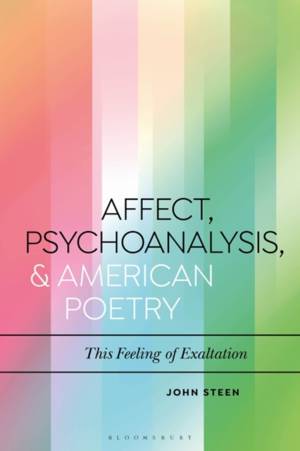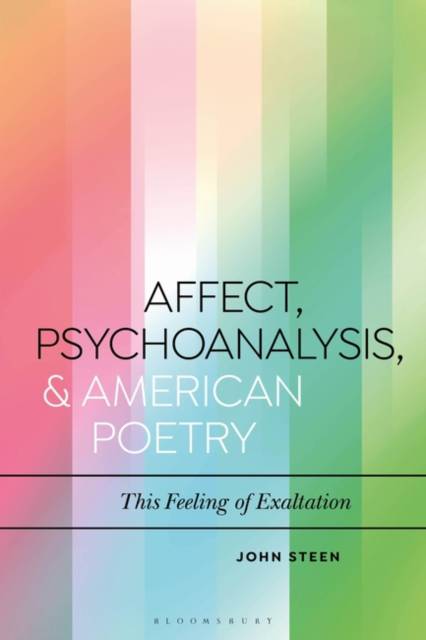
- Afhalen na 1 uur in een winkel met voorraad
- Gratis thuislevering in België vanaf € 30
- Ruim aanbod met 7 miljoen producten
- Afhalen na 1 uur in een winkel met voorraad
- Gratis thuislevering in België vanaf € 30
- Ruim aanbod met 7 miljoen producten
Zoeken
€ 76,45
+ 152 punten
Uitvoering
Omschrijving
Poetry has often been defined by its closure, its condensation of meaning and value into discrete, self-referential textual objects. Affect, Psychoanalysis and American Poetry challenges the dominant metaphor of poetic containers by turning to recent poetic texts that represent the contagious and uncontainable feelings of anxiety, grief, shame, and rage. From modernists Wallace Stevens to mid-century poets Randall Jarrell, Robert Creeley and Ted Berrigan, and finally to contemporary practitioners Aaron Kunin and Claudia Rankine, John Steen argues that new poetic techniques arise from the poetic productivity of negative affects, and that a new model of poetic value can be found in poems that are-instead of containers-permeable, social spaces of intimacy, attachment, and withdrawal. Drawing from object relations, psychoanalysis, queer theory, and affect theory, Affect, Psychoanalysis, and American Poetry finds poetry's singularity in its unique capacity to represent anew the transmissible, relational, and uncontainable valences of feeling that structure and destabilize social life.
Specificaties
Betrokkenen
- Auteur(s):
- Uitgeverij:
Inhoud
- Aantal bladzijden:
- 224
- Taal:
- Engels
- Reeks:
Eigenschappen
- Productcode (EAN):
- 9781350146884
- Verschijningsdatum:
- 23/01/2020
- Uitvoering:
- Paperback
- Formaat:
- Trade paperback (VS)
- Afmetingen:
- 156 mm x 234 mm
- Gewicht:
- 317 g

Alleen bij Standaard Boekhandel
+ 152 punten op je klantenkaart van Standaard Boekhandel
Beoordelingen
We publiceren alleen reviews die voldoen aan de voorwaarden voor reviews. Bekijk onze voorwaarden voor reviews.











